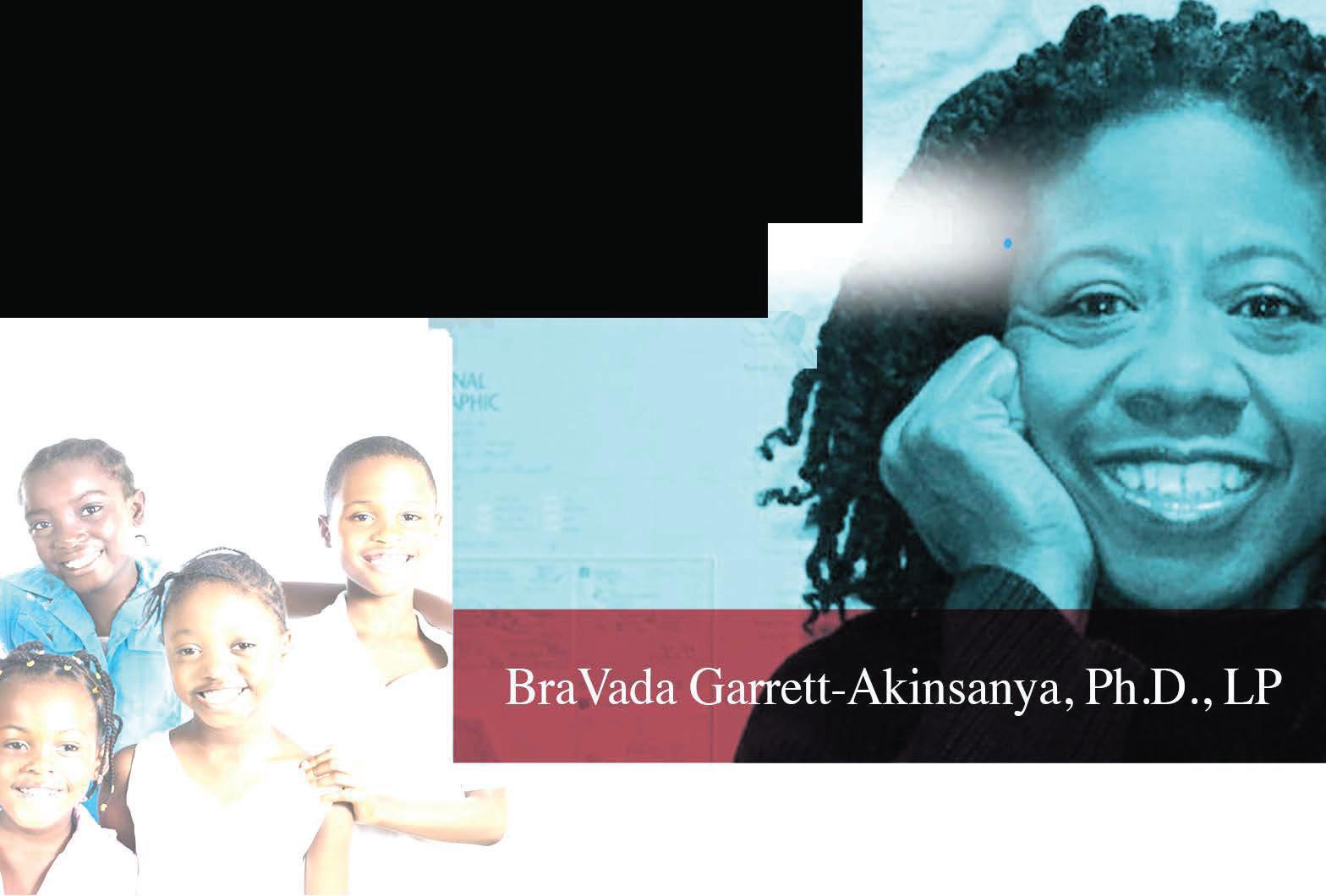
7 minute read
You are Black History in the making.
Act legitimizes ONLY White people’s version of history as “the truth” or as civil discourse in order to preserve the status quo of White entitlement.
Decades ago, Albert Einstein understood White people’s agenda when he published a 1946 Pageant Magazine article on racial bias entitled “The Negro.” He concluded that White Americans who believed that “the Negro” was not their equal suffered from a “fatal misconception,” and had but one simple reason for racism—to retain power over Blacks and solidify White privilege. He wrote, “The modern prejudice against Negros is the result of the desire to maintain their unworthy condition” (https://onbeing. org/blog/albert-einsteins-essayon-racial-bias-in-1946/) . The implications for how The Act will impact the educational freedom of teachers and students are enormous and troubling. And, the question others should be asking is, whose historical lessons will be diluted next?
The College Board’s Political Farce I consider the actions taken by The College Board (TCB) to be nothing short of a political farce. On February 2, 2023, TCB held a party at the National Museum of African American History and Culture (NMAAHC) on the Mall in Washington, DC to celebrate the release of their new AP course.
The NMAAHC as the backdrop was both symbolic and moving since its exhibits reflect the brilliant and humane “way” African Americans made “out of no way,” which is at the very heart of all courses on African American Studies.
Yet some of us were aware that behind the festivities was a festering annoyance that on February 1st and 2nd, The College Board had seemingly capitulated to DeSantis’ trumped-up fears at the eleventh hour as reported by the New York Times (NYT) (https:// www.nytimes.com/2023/02/01/ us/college-board-advancedplacement-african-americanstudies.html ).
According to this article, The College Board had agreed to soften the real history in the AP African American Studies course by making the discussion of many hard facts (such as Reparations, the Black Lives Matter movement, and incarceration) ‘optional” in what is already an elective course.
Beyonddisappointment, as one of the many Black scholar consultants on the AP course’s content, I had to ask myself, to whom and what should The College Board be accountable in making such changes? White fragility?
What happened next can only be described as political theater. On February 7, The College Board organized a webinar orchestrated to presumably “correct” the press coverage about its capitulation to DeSantis.
However, instead of addressing the critiques head on, TCB invited three Black faculty a man shouted as he was led away by court officers. For several minutes thereafter, family members hugged and calmed each other. gently spoke. Then he lowered his head and wept. Minutes later, Barbara Massey Mapps excoriated him for killing her 72-yearold sister, Katherine Massey, a neighborhood activist. As Mapps shouted and pointed at Gendron, a person in the audience took a few steps toward him before getting held back.

“You don’t know what we’re going through,”
Eagan then ordered Gendron back in after admonishing everyone to behave appropriately.
In his short statement, Gendron acknowledged he “shot and killed people because they were Black.” members to speak to the “value” of African American Studies for much of the broadcast. This is only responsive to DeSantis’ criticisms of the course as lacking ‘significant educational value.’ By the end of the broadcast, it was quite evident that The College Board intended to side-step the critiques of Black scholars and others on their watering down of the AP African American Studies course. They paraded the number of Black scholar’s work that could be found in their bibliographies, not that it was required topical content.
“I believed what I read online and acted out of hate, and now I can’t take it back, but I wish I could, and I don’t want anyone to be inspired by me,” he told the victims and their relatives.
One person present in the webinar scoffed at the idea that the Board had yielded to DeSantis, since the AP Course changes had come a few weeks before the controversy around The Act. While that may be true, we must continue to wonder about informal conversations that might have taken place before The Act was signed into law, on which the TCB and the Florida Department of Education disagree.
And, even if it is true that no backroom deals were made, that fact alone does not absolve the Board of having seemingly succumbed to political pressure that led to weakening course content on reparations and other topics characteristically uncomfortable for White people. Moreover, during the webinar, moderated by the AP Program’s White director, NO reference was made to the explicitly political changes that remained in the courses framework (on page 218, see below), which now made certain hot-button topics “optional.”
His own parents didn’t attend. One woman in the audience stood up, screamed “we don’t need” his remarks and stormed out of the courtroom. There were only three survivors among the 13 people he shot while specifically seeking out Black shoppers and workers.
Deja Brown said her father, Andre Mackniel, was blindsided “at the hands of a selfish boy who’s obviously not educated on the history of African Americans.”
Mackniel’s young son still calls for a father who was gunned down while shopping for a birthday cake for him,
Apology Not Accepted The College Board, after the webinar, did issue a statement entitled “Our Commitment to AP African American Studies, Scholars, and the Field.” The wording expressed “regret” for not immediately denouncing the Florida Department of Education’s slander [e.g. saying it falsely reported communications with The College Board]. TCB stated, “We should have made it clear the framework is only an outline…to be populated [by scholarship].… We should have made it clear that contemporary events like the Black Lives Matter Movement, reparations, and mass incarceration were optional topics in the pilot course.” The statement was intended to reassure that the changes made to the AP African American course occurred well before the signing of The Stop W.O.K.E Act by DeSantis. What they failed to explain is why in an April 29th pilot of the AP course, teachers were told to pick only one such topic as optional. In the February 1st release of the framework for the AP African American Studies, there are now three optional topics; also, the choices “…can be refined by states and districts,” or denied. In other words, students might choose any of these topics, but the states and districts have the authority to deny them the ability to write Reports on any of them. According to The College Board, “These topics are not a required part of the course said his brother, Vyonne Elliott. Christopher Braden, a Tops employee who was shot in the leg, said he was haunted by seeing the victims where they lay as he was carried out of the store.
“The visions haunt me in my sleep and every day,” he said. In documents posted online, Gendron said he hoped the attack would help preserve white power in the U.S. He wrote that he picked the Tops grocery store because it is in a predominantly Black neighborhood. Prosecutor Justin Caldwell said Gendron hoped to start a race war, but instead framework that is formally adopted by states and defines the exam. This list is a partial one for illustrative purposes and can be refined by states and districts (under Course Framework, Project, and Exam Overview, p. 218).”
Also, marginalizing the topics of Black Lives Matter, reparations, and unjust incarceration as “current events” – therefore optional - is somewhat spurious. Doing so disconnects topics like BLM from its historical antecedent— the Black Freedom Movement that began when the first Africans were enslaved here. I see BLM as a continuation of Ida
B. Wells Barnett’s anti-lynching campaigns a century ago. Indeed, the quest for reparations is neither new nor singularly current.
African Americans have sought compensation since the denial of the promised 40 acres and a mule (Special Field Orders No. 15, cited in the AP African American Studies framework). As Robin D.G.
Kelley points out his February 3 The New Yorker interview with Keeanga-Yamahtta Taylor on “The Meaning of African American Studies” (https:// www.newyorker.com/culture/qand-a/the-meaning-of-africanamerican-studies), The discipline [of African American Studies] emerged from Black struggle. Now the College Board wants it to be taught with barely any mention of Black Lives Matter. The current AP African American Studies Framework dilutes its impact by making certain topics optional by classifying them as “current the community came together.
Reacting from Washington, NAACP President Derrick Johnson called on federal leaders to acknowledge “the constant threat of violence” to Black communities and urged the media to stop spreading misinformation that feeds racist conspiracy theories.
The mass shooting in Buffalo, soon followed by another that killed 19 students and two teachers at a Texas elementary school, amplified calls for stronger gun controls.
New York legislators quickly passed a law banning semiautomatic rifle sales to events.” As Robin D.G. Kelley writes, it has also made Critical Race Theory optional on the flimsy basis that it (theory) is a “secondary” source. Would human natural history be taught without a discussion of Darwinian natural selection? I bet other AP courses include that “secondary source” abundantly. The exclusion of “secondary sources” in this case is but an evasive excuse. Marginalizing CRT and its many related ideas erases some of the brilliance of Black scholars (Black people’s intelligence) which exposes the White racism with which they contend. For the reasons cited above, I must say to The College Board, without any hesitation, Apology Not Accepted! Link to AP African American Studies Framework by The College Board https://htv-prodmedia.s3.amazonaws.com/files/ ap-african-american-studiescourse-framework-1675287062. pdf most people under age 21. The state also banned sales of some types of body armor.
Michael L. Blakey, PhD, is a biological anthropologist, bioarchaelogist, and science historian. He is NEH Professor of Anthropology, Africana Studies, and American Studies and Founding Director of the Institute for Historical Biology, William & Mary, Williamsburg, Virginia (https:// www.wm.edu/as/anthropology/ people/blakey_m.php ). He is a member of the Scholarly Advisory Committee of the National Museum of African American History and Culture (NMAAHC), Smithsonian Institution, and was Scientific Director of the African Burial Ground Project in the City of New York.
In June, President Joe Biden, a Democrat, signed a compromise gun violence bill intended to toughen background checks, keep firearms from more domestic violence offenders and help states make it easier for authorities to take weapons from people adjudged to be dangerous. Peltz reported from New York. AP National Writer Aaron Morrison contributed from New York.








